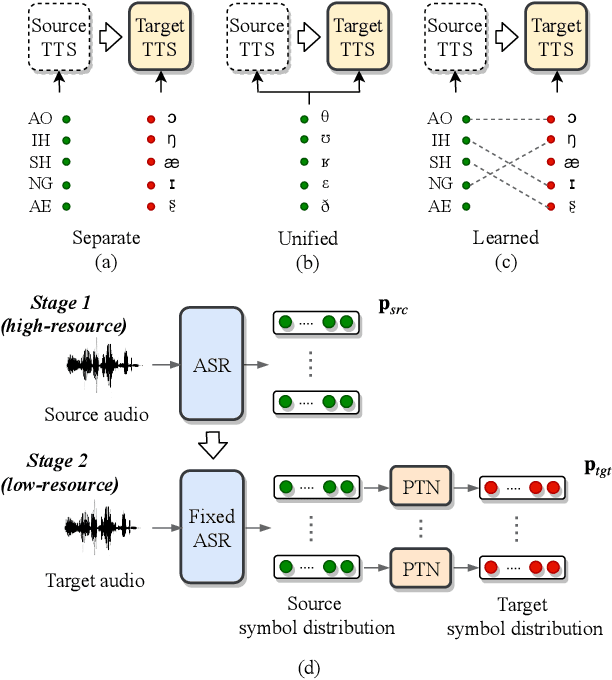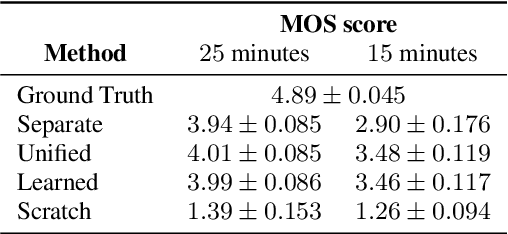Cheng-chieh Yeh
One-shot Voice Conversion by Separating Speaker and Content Representations with Instance Normalization
Apr 16, 2019



Abstract:Recently, voice conversion (VC) without parallel data has been successfully adapted to multi-target scenario in which a single model is trained to convert the input voice to many different speakers. However, such model suffers from the limitation that it can only convert the voice to the speakers in the training data, which narrows down the applicable scenario of VC. In this paper, we proposed a novel one-shot VC approach which is able to perform VC by only an example utterance from source and target speaker respectively, and the source and target speaker do not even need to be seen during training. This is achieved by disentangling speaker and content representations with instance normalization (IN). Objective and subjective evaluation shows that our model is able to generate the voice similar to target speaker. In addition to the performance measurement, we also demonstrate that this model is able to learn meaningful speaker representations without any supervision.
End-to-end Text-to-speech for Low-resource Languages by Cross-Lingual Transfer Learning
Apr 13, 2019



Abstract:End-to-end text-to-speech (TTS) has shown great success on large quantities of paired text plus speech data. However, laborious data collection remains difficult for at least 95% of the languages over the world, which hinders the development of TTS in different languages. In this paper, we aim to build TTS systems for such low-resource (target) languages where only very limited paired data are available. We show such TTS can be effectively constructed by transferring knowledge from a high-resource (source) language. Since the model trained on source language cannot be directly applied to target language due to input space mismatch, we propose a method to learn a mapping between source and target linguistic symbols. Benefiting from this learned mapping, pronunciation information can be preserved throughout the transferring procedure. Preliminary experiments show that we only need around 15 minutes of paired data to obtain a relatively good TTS system. Furthermore, analytic studies demonstrated that the automatically discovered mapping correlate well with the phonetic expertise.
Multi-target Voice Conversion without Parallel Data by Adversarially Learning Disentangled Audio Representations
Jun 24, 2018



Abstract:Recently, cycle-consistent adversarial network (Cycle-GAN) has been successfully applied to voice conversion to a different speaker without parallel data, although in those approaches an individual model is needed for each target speaker. In this paper, we propose an adversarial learning framework for voice conversion, with which a single model can be trained to convert the voice to many different speakers, all without parallel data, by separating the speaker characteristics from the linguistic content in speech signals. An autoencoder is first trained to extract speaker-independent latent representations and speaker embedding separately using another auxiliary speaker classifier to regularize the latent representation. The decoder then takes the speaker-independent latent representation and the target speaker embedding as the input to generate the voice of the target speaker with the linguistic content of the source utterance. The quality of decoder output is further improved by patching with the residual signal produced by another pair of generator and discriminator. A target speaker set size of 20 was tested in the preliminary experiments, and very good voice quality was obtained. Conventional voice conversion metrics are reported. We also show that the speaker information has been properly reduced from the latent representations.
 Add to Chrome
Add to Chrome Add to Firefox
Add to Firefox Add to Edge
Add to Edge